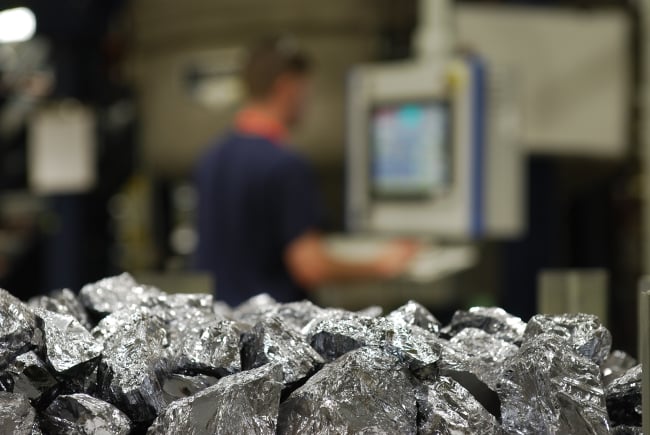
PV Price Watch is a new regular feature on PV Tech, bringing you weekly updates on the situation regarding polysilicon, wafer, cell and module pricing. Our journalists in China and Europe will provide timely updates, keeping you up to speed with the situation as and when it happens.
China Silicon Industry, the country’s trade association for the nonferrous metals industry, has warned that pricing for polysilicon chips has soared 13.2% to highs of RMB273/kg (US$42.42/kg), placing further pricing pressure on the solar industry.
Try Premium for just $1
- Full premium access for the first month at only $1
- Converts to an annual rate after 30 days unless cancelled
- Cancel anytime during the trial period
Premium Benefits
- Expert industry analysis and interviews
- Digital access to PV Tech Power journal
- Exclusive event discounts
Or get the full Premium subscription right away
Or continue reading this article for free
Latest prices released by China Silicon Industry yesterday (13 October) showed that this week’s domestic pricing for monocrystalline chips ranged from RMB260 – 273/kg (US$40.4 – 42.42/kg), with an average transaction price of RMB269.9/kg (US$41.93/kg), up 13.2% on the last pricing update.
The price range for mono dense poly meanwhile stood at RMB258 – 271/kg (US$39.31 – 42.11/kg) with an average transaction price of RMB268/kg (US$41.65/kg).
The association noted that the vast majority of polysilicon orders for October had been signed. With the average price of polysilicon rising sharply this week, with subsequent orders being arranged at higher prices, average market prices are expected to rise into November.
The situation is to be exacerbated by an ongoing shortage of silicon powder caused by industrial power rationing in China. Polycrystalline silicon companies based in Xinjiang are to be hit further by the so-called ‘double control’ over energy consumption, prompting further concerns over companies reducing their output in thee coming weeks.
As the price of silicon materials, solar wafers and cells continues to rise, module prices are beginning to reflect those increases and leading brand, 450W modules have sold at a price of RMB2.1/W (US$0.32/c) this week.
Purchasing bids for an order of 193MW of PV modules by developer Guangdong Hydropower destined for a development in Xinjiang Bachu opened this week, and the highest price for a 150MW order was placed by domestic solar producer Red Sun at a unit price of RMB2.1/W.
Furthermore, PV Tech understands that some distributed solar rooftop procurement prices have reached similar prices. A well-known distributed rooftop solar installer in China has struck a price of RMB2.1/W with a leading module provider in order to secure supply of 450W modules to keep a project on schedule.
There are additional reports that prices for some 182mm modules have jumped to high prices of RMB2.15/W (US$0.33/W), however those prices depend on the payment methods negotiated between the two parties.
Many established module manufacturer have begun to delay delivery or stop receiving projects altogether, and similarly installers in China are placing projects on hold after failing to receive modules as expected.
With industry stakeholders estimating that pricing trends will only continue under the “double control” measures being felt in China, coupled with the traditional Q4 peak period for installations, one developer describe the situation in module supply as a “horror” for the industry.






